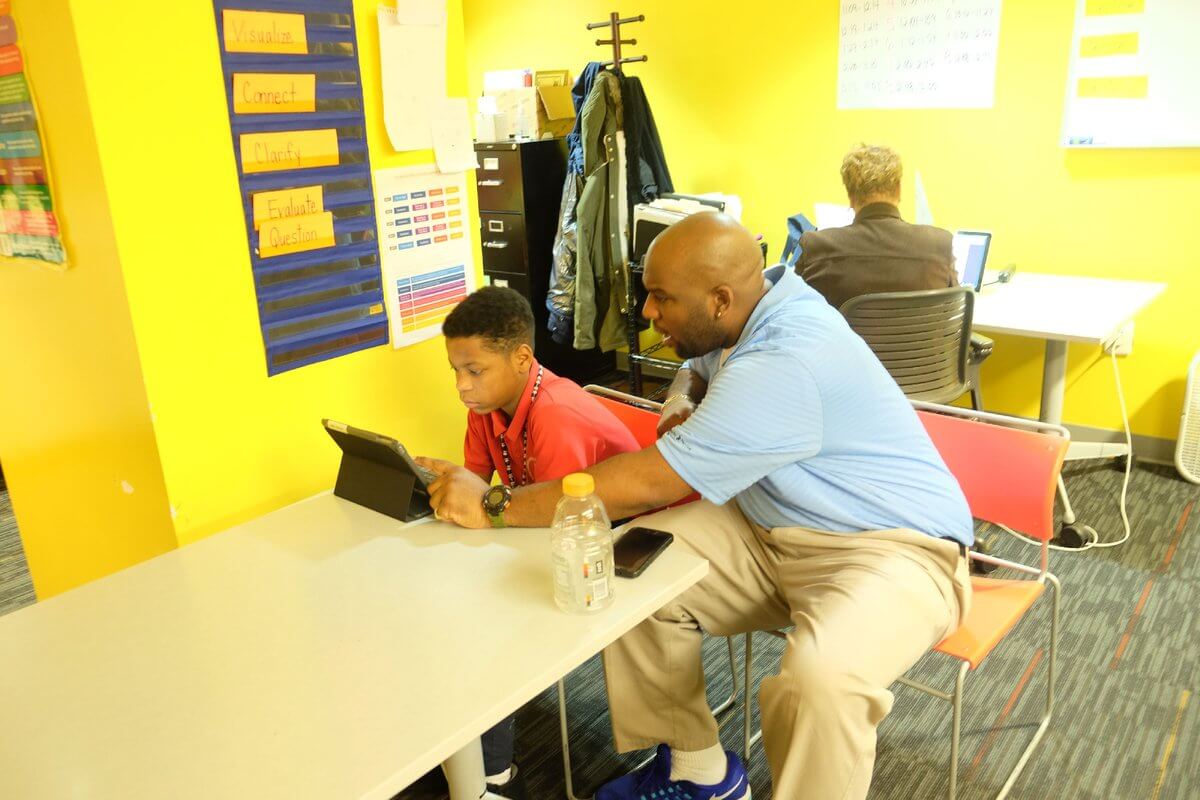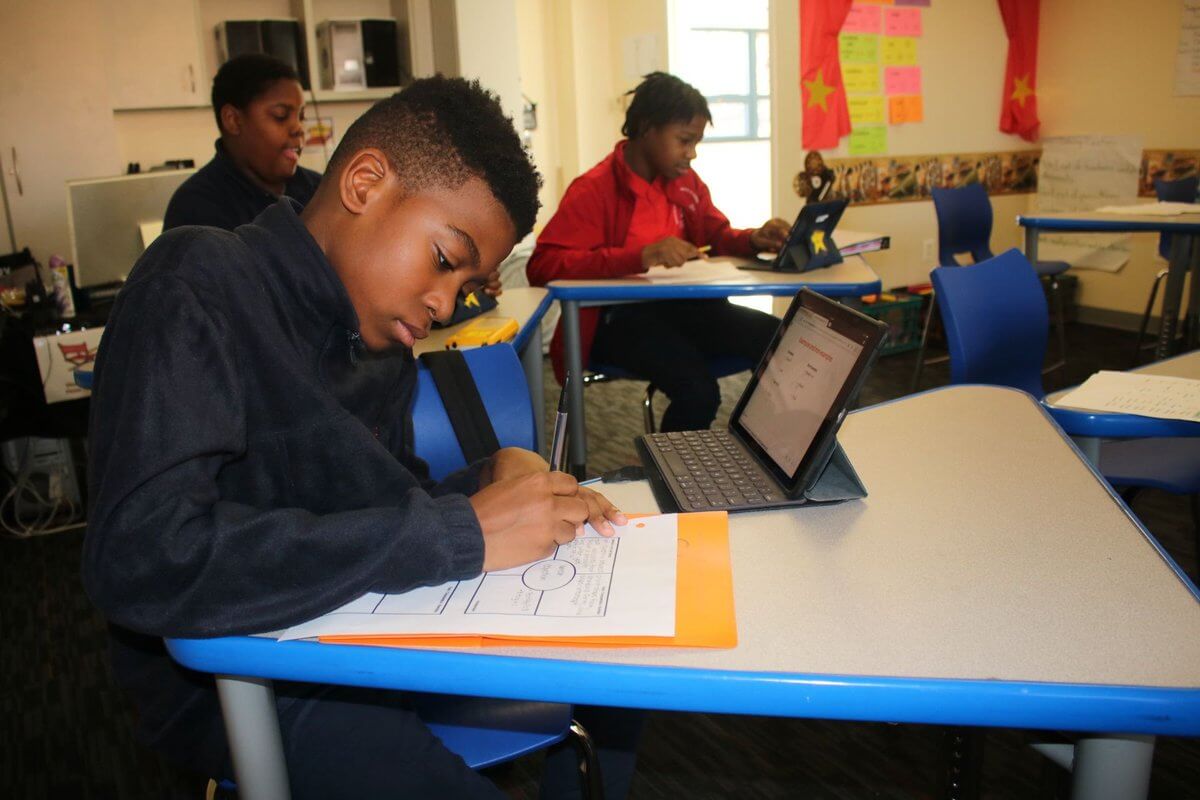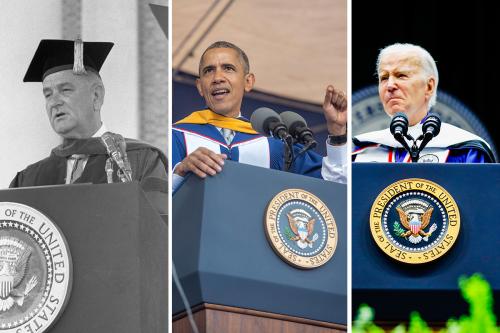 WASHINGTON (March 4, 2019) – To combat the disparity of African Americans serving as K-12 educators across the country, Howard University’s School of Education is positioning itself as the progressive choice for aspiring educators of color. Although the nation’s racial demographic is rapidly diversifying, the amount of teachers of color in American classrooms, particularly black teachers, remains relatively low. According to the National Center for Education Statistics (NCES), in 2016, seven percent of educators in the United States were black, non-Hispanic. For black males, the number falls to just two-percent.
WASHINGTON (March 4, 2019) – To combat the disparity of African Americans serving as K-12 educators across the country, Howard University’s School of Education is positioning itself as the progressive choice for aspiring educators of color. Although the nation’s racial demographic is rapidly diversifying, the amount of teachers of color in American classrooms, particularly black teachers, remains relatively low. According to the National Center for Education Statistics (NCES), in 2016, seven percent of educators in the United States were black, non-Hispanic. For black males, the number falls to just two-percent.
“Recognizing that diverse teachers are in high demand and in short supply, the School of Education continues to produce effective and credentialed teachers. We are intentional about our preparation, pedagogy and assessments. This intentionality must also be adopted by school districts that are serious about diversifying their teaching force,” says Dawn Williams, Ph.D., dean of the School of Education. “While participating in teacher recruitment fairs is a strategy to attract diverse teachers, partnering with universities that have a strong track record of producing high quality teachers for diverse school communities is the deliberate action that is needed. In the School of Education 20% of our pre-service teacher candidates are Black males.”
Black males have been known to achieve great feats, despite inequities, discrimination, poor quality schooling experiences, and fewer mentorship opportunities. These accomplishments are often attained with the assistance and support of Black male teachers.
Williams says while the School of Education is currently working on systemic approaches to addressing the shortage, she says the stigma around black male teachers has not led to a decline in interest from black male students. Kaleb Oates, a senior English Education student, says his own educational experiences as a student of Detroit Public Schools motivated him to pursue a degree in education.
“There is, without question, an indelible impression that Black male teachers are able to make upon Black male students that can be accomplished by no other,” Oates explains. “Surely, [Black] woman teachers change lives daily, but there is nothing more comparable than being able to identify with someone who looks exactly like you.”
Oates says his first interactions with Black males as educators occurred while attending high school, adding, had those interactions happened earlier, he’s certain his “behavioral issues” may have been addressed quite differently.
“I want my colleagues and students to be thoroughly aware of the negative, racially-backed trends that contribute to educational inequalities amongst Black students, especially Black boys,” he says. “I will spend the rest of my life challenging our current education policies and practices in order to ensure that both my colleagues and students are presented with the most productive learning outcomes.”
The benefits of young black students being taught by educators of color have been proven throughout history. The National Bureau of Economic Research recently released a reportshowing that black students who have one black teacher during elementary school are 13 percent more likely to enroll in college. For students who have two black teachers during elementary school, their likelihood of becoming a college student increases to 32 percent. Kenneth Alonzo Anderson, Ph.D., former middle school teacher, and current associate dean in the School of Education, says, although Black male teachers provide unique support to many Black students, it is a wide misnomer that Black male teachers only provide benefits to Black students.
 “In many cases, Black male teachers build exceptional relationships with non-Black students, teachers, and other staff through their teaching and leadership on committees, clubs, and extracurricular activities,” says Anderson. “Moreover, Black male teachers often provide some of the few opportunities for non-Black students and staff to interact with an adult Black male on a regular basis. These interactions often help to dispel harmful stereotypes, build trust among colleagues, and develop trusting relationships within non-Black families as well.”
“In many cases, Black male teachers build exceptional relationships with non-Black students, teachers, and other staff through their teaching and leadership on committees, clubs, and extracurricular activities,” says Anderson. “Moreover, Black male teachers often provide some of the few opportunities for non-Black students and staff to interact with an adult Black male on a regular basis. These interactions often help to dispel harmful stereotypes, build trust among colleagues, and develop trusting relationships within non-Black families as well.”
Rashad Lynch, an alum of Howard University’s School of Education, is a social studies teacher at International Academy on the Francis L. Cardozo Education Campus, in Washington, D.C. Lynch is the only African American male teacher at the academy, and says young black male students are specifically drawn to him due to the school’s racial demographic. Many students are new to the United States and speak little English.
“As an international academy teacher, I don't see as many African American males as other teachers, but the few that do make it to me have told me that my class was one of their favorites,” Lynch explains. “I challenge students from day one and hold them accountable for their actions. There is a bit of push back throughout the course, but afterwards students have come back to me saying that my class prepared them for college or for interactions at work.”
Lynch says his time as a resident specialist with the Virginia Department of Juvenile Justice drives him to work tirelessly to prevent as many young black men as possible out of incarceration. He says the constant motivator for continuing his education career is the children.
“I see many of these young people more than their friends and family,” he says. “If I can impart any positive life lessons as well as content related ones, I will have won for the day.”
The Howard University School of Education prides itself on preparing graduates to be leaders of change and reflective practitioners, with an extensive knowledge of how to eradicate the effects of racism in education and human service delivery. For more information on the School of Education, including department descriptions and admission requirements, visit https://education.howard.edu.
###
About Howard University
Founded in 1867, Howard University is a private, research university that is comprised of 13 schools and colleges. Students pursue studies in more than 120 areas leading to undergraduate, graduate and professional degrees. The University operates with a commitment to Excellence in Truth and Service and has produced four Rhodes Scholars, 11 Truman Scholars, two Marshall Scholars, one Schwarzman Scholar, over 70 Fulbright Scholars and 22 Pickering Fellows. Howard also produces more on-campus African-American Ph.D. recipients than any other university in the United States. For more information on Howard University visit www.howard.edu
Media contact: Ramzey Smith, Office of University Communications, Ramzey.smith@howard.edu
Photo credit: Howard University School of Education, Howard University Middle School of Mathematics and Science




